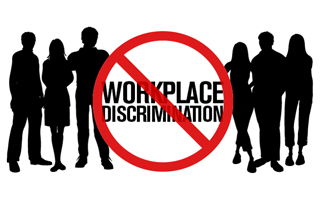Employers need a discrimination prevention checklist. Here it is!
 The more questions to which you answer “Yes,” the more you are doing to prevent discrimination based on race, color, age, religion, national origin, gender, genetic disposition or other protected classes in your workplace in terms of hiring, promotion, and dismissal.
The more questions to which you answer “Yes,” the more you are doing to prevent discrimination based on race, color, age, religion, national origin, gender, genetic disposition or other protected classes in your workplace in terms of hiring, promotion, and dismissal.
To avoid discrimination in supervisory tasks, do you:
- Keep employment decisions focused on job-related abilities and skills?
- Identify “essential functions” of each job and describe them in objective language?
- Focus on an individual’s performance of essential duties when making any employment decisions?
- Know and follow federal, state, and local discrimination laws?
- Know and follow your organization’s policies against discrimination?
- Proceed with special caution when making an employment decision affecting a member of a protected class?
- Make sure that any performance problems have been well documented?
- Ensure that you can prove that a layoff or transfer was based on a “business necessity”?
- Not make placement decisions based on appearance or other characteristics unrelated to job performance, such as being overweight or bald or for personal habits such as smoking?
- Treat older workers in a nondiscriminatory way?
- Ensure that there is no retaliation against employees who exercise their rights under the law, take authorized leave, request accommodations, or complain of discrimination?
To prevent discrimination in the workplace, do you:
- Take all complaints of discrimination or harassment seriously?
- Appoint a special person to handle and investigate all complaints of discrimination?
- Use exit interviews to ask former employees if any problems existed?
- Monitor the workplace for discriminatory posters, cartoons, joking, references,e-mails, banter, or other inappropriate conduct?
- Ask employees for any suggestions they may have about preventing discrimination?
- Emphasize to all employees that discrimination is everyone’s concern?
To ensure compliance, do you:
- Treat pregnancy like any other disability in terms of job rights and benefits?
- Accommodate religious beliefs by allowing arrangement for coverage of jobs, if necessary, during religious holidays?
- Use English-only policies when required by a specific business necessity?
- Clearly communicate your English-only policy so employees know when they are required to speak English and the consequences of violating the policy?
- Engage in the interactive process when an employee requests a reasonable accommodation for a disability?
- Document the reasons for decisions that affect wages, benefits, or other forms of compensation?
- Ensure compliance with NLRA Section 7 rights. Ensure there is no “chilling effect”
